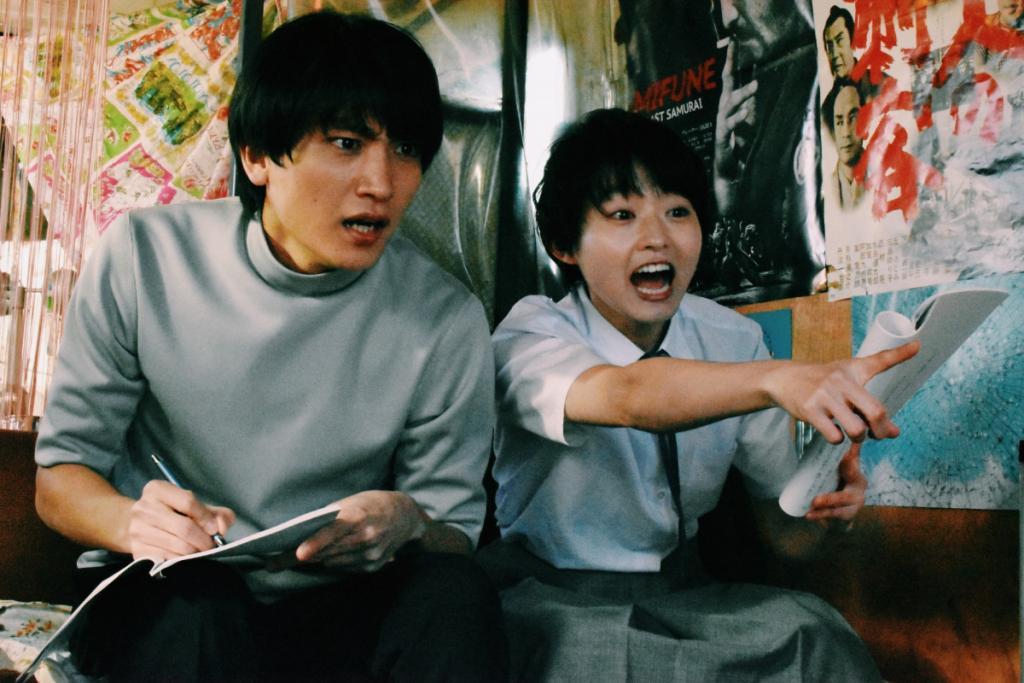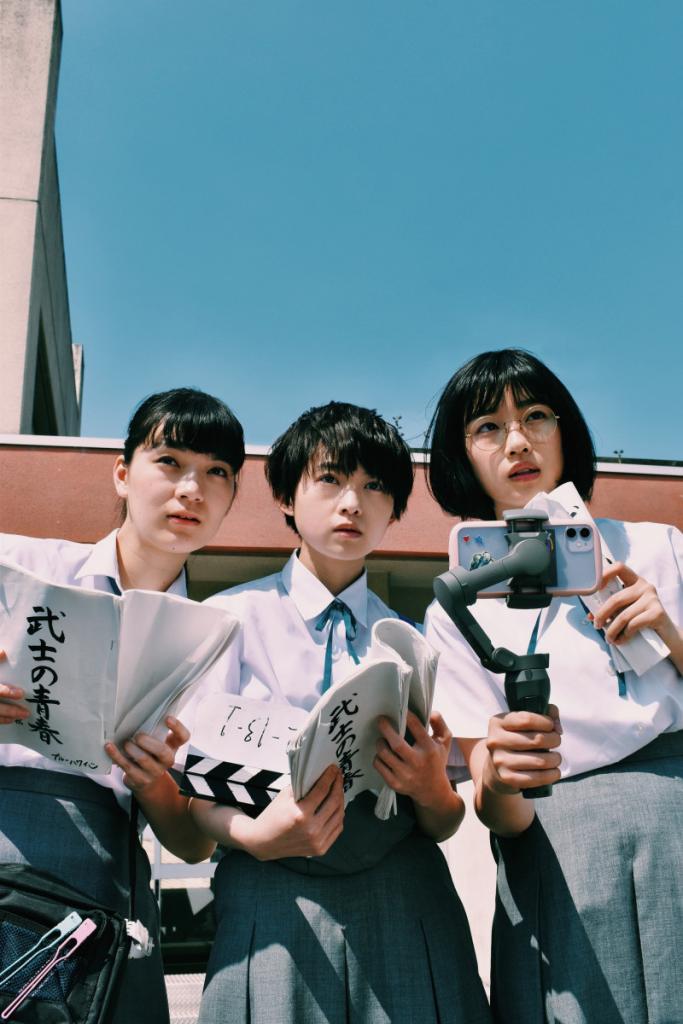
There’s a certain exuberance with stories about aspiring artists in pursuit of goals greater than themselves, reaching epiphanies that ultimately transform them in the process through some measure of joy and immense pain. It’s all about the growth, normally, and this – particularly with a dash of romance, chanbara and sci-fi – especially coincides with Soushi Matsumoto’s new film, It’s A Summer Film!.
There are eighty days left until the launch of a film festival for a group of high school film clubbers (each who address each other by a nickname), including kendo student Blue Hawaii (Inori Kilala), sci-fi fan Kickboard (Kawai Yuumi), and chanbara-obssessed Barefoot (pop idol, actress and former Nogizaka46 member Marika Ito), who is eager to produce her inspired period sword drama screenplay, Samurai Spring. Deal is, apart from casting, she can’t get around not being the club’s filmmaking favorite, Karin (Coda Mahiru), to be awarded the club’s budget, which largely leaves her dreaming big while living vicariously through her club’s DVD collection, which she stashes in an abandoned van littered with DVDs, books on samurai filmmaking, and iconic posters.
She also spends time at her local cinema watching samurai classics, which, on one opportune afternoon after such a screening, she bumps into, Rintaro (Kaneko Daichi), a young man who, seemingly by chance, loves the same genre of movies that Barefoot does. It’s also the second time she’s bumped into him since doing so while wrapped in a samurai daydream one afternoon only to witness time freezing for a moment, and it becomes clear right then that Rintaro is exactly the one person she needs to make her movie happen, much to his chagrin and despite his repeated reluctance and attempts to runaway.
Alas, production begins after several days of laboring to make enough money for a small budget and decent equipment, and ultimately assembling a crew out of several oddball classmates, each with their own quirks. Shooting days are a hit or miss as oftentimes Barefoot finds herself trailing at similar locations where Karin happens to be filming her cheesy teen romance drama, using more upscale equipment and a slightly larger crew. Nonetheless, it appears that Barefoot, Kickboard and Blue Hawaii are making progress with their film, with each day brimming with optimism as they get closer and closer to the film’s wrap, but that’s only until a startling revelation about the future puts Barefoot in a terrible bind that jeopardizes her creativity, as well as the film itself.
If you’ve ever hit a creative stride or a momentum for a higher postion towards something you love and wish to represent, it’s not difficult to understand the often brushes with imposter syndrome that can loom when you least expect it. Barefoot certainly endures moments like these, though it never really gets in the way of her ambition, and it helps that her two club mates are there to help boost her morale the way best friends usually do. It also helps that she’s observing a feeling that she’s trying to mitigate a filmmaker who loves samurai movies pretty much more than anything.
That exuberance I spoke of earlier? This is a testament to that. I haven’t seen Linda Linda Linda yet to adapt it as part of my analysis, barring Japan Cuts in its own programming notes, but I love Sono Sion’s Why Don’t You Play In Hell?, seeing as Ito’s character reminds me of the dogged and devout director (played phenomenally by Hiroki Hasegawa) on his quest to make HIS movie – the greatest movie ever made. And no, you won’t see actress Ito running down the street strapped to bags full of reels covered in blood following a vicious on-set battle between yakuza families killing each other in a hail of bullets and puddles of blood.
Rest assured though, the energy is spirited, and all the more similar. Ito’s portrayal of Barefoot is an aspiring character, a total fangirl with a genuine vision for what she wants to do and no way to do it at first. When she finally gets the opportunity, it more than opens doors for her to realize her goals, ultimately forcing her to confront her own inner-emotions. The best part is when it all comes full circle in the final sequence.
Encompassing a message that centers on the unifying power of cinema, It’s A Summer Film! is a gloriously fun and entertaining coming-of-age drama. It’s a love letter to filmmaking, written by the ambivalence of youth, introspective growth and romance, all with a small dash of science fiction, and sometimes ludic, albeit deftly shot moments of reenacted samurai fight scenery that go hand in hand with the drama on screen.

